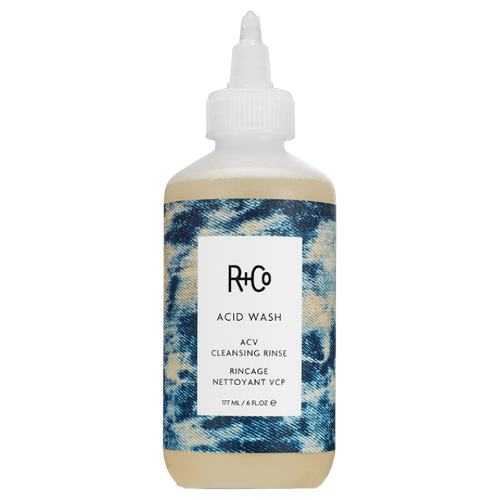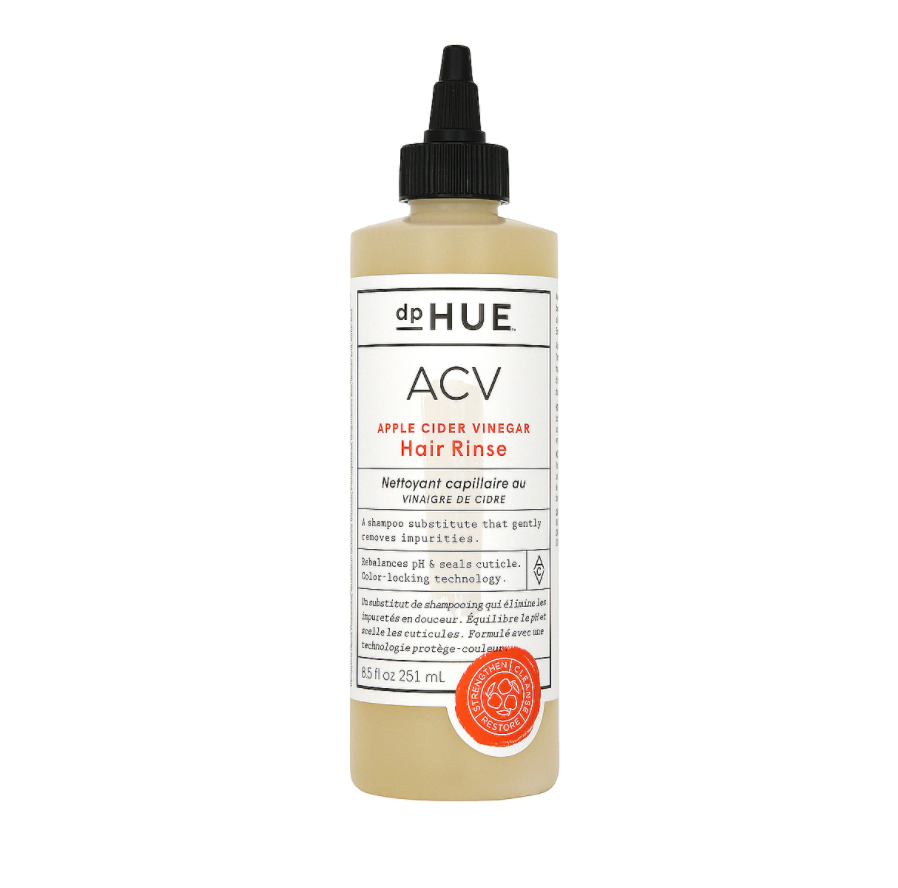At Refinery29 Australia, we’re here to help you navigate this overwhelming world of stuff. All of our picks are independently selected and curated by the editorial team, but we may earn commission or other compensation from the links on this page.
Few things have managed to steal — and stay — in the DIY spotlight the way apple cider vinegar has. Aside from its ability to make any sad salad a little more exciting, the fermented juice has taken on a life of its own in the beauty space.
Start looking into the benefits by typing those three words into Google, however, and it's not salad dressing or fading dark spots that pop up as a suggestion: it's hair. Search the terms on YouTube, and you'll find thousands of videos of people dousing their hair in the pungent-smelling solution, purportedly to encourage growth, increase moisture, and get rid of dandruff. If you think it all sounds too good to be true — well, so did we.
AdvertisementADVERTISEMENT
We asked dermatologist Neil Sadick, MD, of Sadick Dermatology in New York City, for his opinion on the popular hack. "Apple cider vinegar has a few beneficial properties," he says. "It's anti-bacterial, anti-inflammatory, antioxidant, and also acidic." Dr. Sadick explains that the acidity of ACV can help adjust the natural pH of the scalp to its optimal levels, and allow for gentle exfoliation of product buildup.
That said, using ACV on your hair isn't the same as using it on your scalp. That's why Yolanda Lenzy, MD, of Lenzy Dermatology in Massachusetts, says to proceed with caution before you go down the DIY rabbit hole. "I always stress the difference between using something on your hair versus using it all over your scalp," she says. "Apple cider vinegar isn't harmful, per se, but it is acidic and can dry out the hair, which can lead to breakage."
While most experts don't deny the potential benefits of Instagram's condiment of choice, there is a potential downside to splashing your skin with it — and a painful one, at that. Dermatologist Ted Lain, MD, of Sanova Dermatology in Texas, tells us that even though it can lower high pH levels in the scalp, you can experience more irritation if your pH falls too low. "Because ACV is so acidic, direct undiluted application to the scalp can also lead to mild burns," he says.
Dr. Lain says that the key to avoiding burns and irritation is to dilute 2-4 tablespoons of ACV in 8 ounces of water. "I would only suggest leaving it on for about 30 seconds and rinsing thoroughly," he says. Dr. Sadick also recommends doing a small patch test on your skin prior to dousing your head to rule out allergic reactions or hypersensitivity. Though raw, unadulterated ACV isn't dangerous to use provided you do it correctly, there are over-the-counter products out there formulated to avoid human error. "Products with ACV will often contain other hair-conditioning ingredients which can help prevent dryness and irritation," Dr. Lain says. "The concentration of ACV in most commercial products is also diluted, so you can lower the risk of experiencing burns."
Whether or not you find a way to make ACV work for your routine, Dr. Lenzy emphasizes that you should always seek professional help if your scalp condition worsens or persists. "You can't always trust what you see on Google," she says. "Sometimes, you might think you have one condition, but you really can't be sure until you see an expert." So if dandruff's got you down, save your nose the agony by stepping away from the ACV, and talk to a professional instead.
AdvertisementADVERTISEMENT








